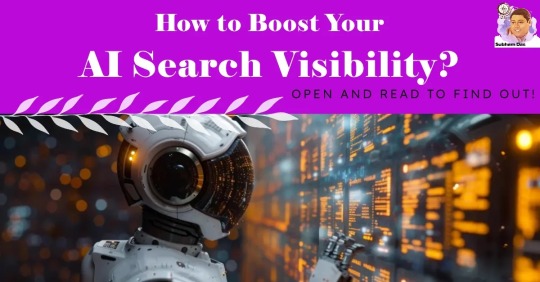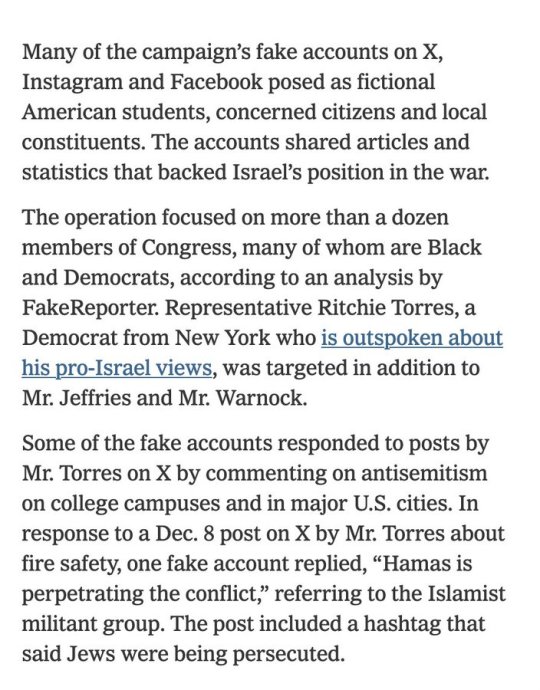#Artificial Organs Market
Explore tagged Tumblr posts
Text
Artificial Organs Market Dynamics & Forecast Analysis | 2024-2033

Artificial Organs Market Overview
The Global Artificial Organs Market has seen continuous development in the past couple of years and is anticipated to grow much further during the forecast period. The exploration introduces a total evaluation of the Artificial Organs Market and contains Future patterns, Current Growth Factors, mindful sentiments, certainties, chronicled information, and factually bolstered and industry-approved market information.
According to Straits Research, the global Artificial Organs market size was valued at USD XX Billion in 2021. It is projected to reach from USD XX Billion in 2022 to USD 23255 Million by 2030, growing at a CAGR of 8.5% during the forecast period (2022–2030).
After identifying promising candidates, they undergo extensive testing and optimization to enhance their effectiveness, safety, and pharmacokinetic properties. This entire process of Artificial Organs Market may take several years and necessitates collaboration between scientists from diverse fields such as chemistry, biology, and pharmacology. Irrespective of the challenges encountered during Artificial Organs Market, it has the potential to revolutionize lives by providing new treatments for various diseases.
Request Sample Report of Global Artificial Organs Market @ https://straitsresearch.com/report/artificial-organs-market/request-sample
Competitive Analysis
0 notes
Text
Artificial Organs Market Size, Share, Growth, Demand and Forecast 2024-2032

IMARC Group's report titled "Artificial Organs Market Report by Type (Artificial Kidney, Artificial Heart, Artificial Pancreas, Cochlear Implants, and Others), and Region 2024-2032", offers a comprehensive analysis of the industry, which comprises insights on the global artificial organs market trends. The global market size reached US$ 20.6 Billion in 2023. Looking forward, IMARC Group expects the market to reach US$ 40.6 Billion by 2032, exhibiting a growth rate (CAGR) of 7.6% during 2024-2032.
For an in-depth analysis, you can refer sample copy of the report: https://www.imarcgroup.com/artificial-organs-market/requestsample
Factors Affecting the Growth of the Artificial Organs Industry:
Advancements in Medical Technology:
Innovations in biomedical engineering, materials science, and regenerative medicine are leading to the development of advanced artificial organs. These innovations assist in enhancing the functionality, durability, and compatibility of artificial organs with the human body. In addition, the development of biocompatible materials that closely mimic the properties of human tissues and organs. These materials enable the creation of artificial organs that seamlessly integrate with the body, reducing the risk of rejection and improving long-term outcomes for patients. Furthermore, advancements in manufacturing techniques, such as three-dimensional (3D) printing, enable the production of artificial organs, allowing for precise customization and complex geometries.
Rising Prevalence of Organ Failure:
The growing demand for artificial organs due to the increasing prevalence of chronic diseases like kidney, heart, liver, and lung ailments among the masses across the globe is offering a positive market outlook. People are facing these disorders due to factors like sedentary lifestyles and aging populations. Apart from this, artificial organs offer life-sustaining alternatives for patients facing organ failure, reducing mortality rates while enhancing quality of life. Moreover, advancements in medical technology improve the efficacy and accessibility of artificial organs, making them viable options for patients worldwide.
Rising Geriatric Population:
The escalating demand for artificial organs on account of the increasing geriatric population is supporting the growth of the market. Elderly individuals are more susceptible to conditions, such as heart disease, kidney failure, and respiratory disorders. They also face challenges in accessing donor organs for transplantation due to age-related factors, such as decreased physiological reserve and comorbidities. Besides this, the shortage of donor organs is particularly vital in older age groups, leading to longer waiting times and increased mortality rates among elderly patients on transplant waiting lists. Furthermore, artificial organs offer a suitable alternative for elderly patients who may not be suitable candidates for traditional organ transplantation.
Leading Companies Operating in the Global Artificial Organs Industry:
Abiomed, Inc.
HeartWare International, Inc.
Edwards Lifesciences Corp
Boston Scientific Corporation
Cochlear Limited
Artificial Organs Market Report Segmentation:
By Type:
Artificial Kidney
Artificial Heart
Artificial Pancreas
Cochlear Implants
Others
On the basis of the type, the market has been divided into artificial kidney, artificial heart, artificial pancreas, cochlear implants, and others.
Regional Insights:
North America (United States, Canada)
Asia Pacific (China, Japan, India, South Korea, Australia, Indonesia, Others)
Europe (Germany, France, United Kingdom, Italy, Spain, Russia, Others)
Latin America (Brazil, Mexico, Others)
Middle East and Africa
Region-wise, the artificial organs market is segmented into North America, Europe, Asia Pacific, Middle East and Africa, and Latin America.
Global Artificial Organs Market Trends:
Artificial organs offer an alternative source of replacement organs, reducing dependency on donor organs and alleviating the burden on transplant waiting lists. Moreover, advancements in tissue engineering and regenerative medicine enable the creation of bioengineered organs that overcome issues of compatibility and availability associated with traditional organ transplantation.
Apart from this, improved healthcare expenditure allows for greater investment in research and development (R&D) activities of artificial organ technologies. This investment drives innovation and facilitates the commercialization of new artificial organs around the world. Moreover, the increasing awareness among patients and healthcare professionals about the benefits and availability of artificial organs is bolstering the market growth.
Note: If you need specific information that is not currently within the scope of the report, we will provide it to you as a part of the customization.
About Us:
IMARC Group is a leading market research company that offers management strategy and market research worldwide. We partner with clients in all sectors and regions to identify their highest-value opportunities, address their most critical challenges, and transform their businesses.
IMARCs information products include major market, scientific, economic and technological developments for business leaders in pharmaceutical, industrial, and high technology organizations. Market forecasts and industry analysis for biotechnology, advanced materials, pharmaceuticals, food and beverage, travel and tourism, nanotechnology and novel processing methods are at the top of the companys expertise.
Our offerings include comprehensive market intelligence in the form of research reports, production cost reports, feasibility studies, and consulting services. Our team, which includes experienced researchers and analysts from various industries, is dedicated to providing high-quality data and insights to our clientele, ranging from small and medium businesses to Fortune 1000 corporations.
Contact US
IMARC Group
134 N 4th St. Brooklyn, NY 11249, USA
Email: [email protected]
Tel No:(D) +91 120 433 0800
United States: +1-631-791-1145 | United Kingdom: +44-753-713-2163
0 notes
Text
Generative Engine Optimization-Visibility in AI Search
Learn how to boost visibility in AI search engines with Generative Engine Optimization (GEO). Continue reading to discover the strategies and benefits. Search Generative Engine Optimization: A New Paradigm for AI SearchWhy GEO MattersKey Strategies for GEOExpert TipExampleStatisticsFurther Reading Search Generative Engine Optimization: A New Paradigm for AI Search Search Generative Engine…

View On WordPress
#artificial intelligence#marketing strategy#search engine optimization#generative ai#seo#ai search#generative engine optimization#ai visibility#ai marketing#digital marketing#search visibility#content optimization#ai tools#marketing trends#online visibility#seo strategy#ai-driven seo#search ranking#marketing technology#ai content#website optimization#seo trends#search engine ranking#ai in marketing#digital visibility#search engine tools#ai algorithms#content strategy#marketing automation#organic search
0 notes
Text
Artificial Organs & Bionic Implants Market
The field of artificial organs and bionic implants is witnessing unprecedented advancements, revolutionizing the landscape of healthcare and offering new hopes for patients with organ failures and disabilities. As technology continues to evolve, the artificial organs and bionic implants market is poised for significant growth, driven by innovations in biomedical engineering, increasing prevalence of chronic diseases, and a rising aging population.
Request To Download Sample of This Strategic Report — https://univdatos.com/report/artificial-organs-bionic-implants-market/get-a-free-sample-form.php?product_id=51581
Market Overview
Artificial organs and bionic implants are sophisticated medical devices designed to replicate the functions of natural organs. These include artificial hearts, kidneys, lungs, and liver, as well as bionic limbs and sensory organs such as eyes and ears. The primary objective of these devices is to improve the quality of life for individuals with organ failures or disabilities, reduce dependency on organ transplants, and address the shortage of donor organs.
Recent Developments
3D Printing and Bioprinting: One of the most promising developments in the field is the use of 3D printing and bioprinting technologies. Researchers have made significant strides in creating biocompatible materials and scaffolds that can support cell growth, leading to the fabrication of tissues and organs. In 2023, scientists successfully 3D printed a functional heart valve that mimics the mechanical properties of a natural valve, marking a significant milestone in the field.
Advancements in Bionic Limbs: Bionic limbs have seen remarkable improvements in terms of functionality and user experience. Modern prosthetic limbs are now equipped with advanced sensors and actuators that allow for more natural movements and enhanced control. In 2023, a notable breakthrough was the development of a bionic arm that integrates with the user’s nervous system, enabling precise and intuitive control through neural signals.
Artificial Pancreas: The development of artificial pancreas systems has revolutionized diabetes management. These systems, which combine continuous glucose monitoring with automated insulin delivery, provide real-time management of blood sugar levels. In 2023, the FDA approved a new artificial pancreas device that offers enhanced precision and adaptability, significantly improving the lives of people with type 1 diabetes.
Regenerative Medicine: Regenerative medicine has also contributed to the advancement of artificial organs. Techniques such as stem cell therapy and tissue engineering are being explored to regenerate damaged tissues and organs. Recent studies have demonstrated the potential of stem cells to repair heart tissue after a myocardial infarction, offering new avenues for treating cardiovascular diseases.
𝐃𝐨𝐰𝐧𝐥𝐨𝐚𝐝 𝐒𝐭𝐫𝐚𝐭𝐞𝐠𝐢𝐜 𝐒𝐚𝐦𝐩𝐥𝐞 𝐏𝐃𝐅 𝐇𝐞𝐫𝐞- https://univdatos.com/report/artificial-organs-bionic-implants-market/get-a-free-sample-form.php?product_id=51581
Market Analysis
The global market for artificial organs and bionic implants is projected to grow at a compound annual growth rate (CAGR) of over 9% from 2023 to 2030. Several factors are driving this growth:
Increasing Prevalence of Chronic Diseases: The rising incidence of chronic diseases such as cardiovascular diseases, diabetes, and kidney failure has led to a growing demand for artificial organs and bionic implants. For instance, the number of patients with end-stage renal disease (ESRD) requiring dialysis or kidney transplantation is on the rise, propelling the demand for artificial kidneys.
Technological Innovations: Continuous advancements in technology, including improvements in biomaterials, nanotechnology, and robotics, are enhancing the performance and reliability of artificial organs and bionic implants. These innovations are making devices more affordable and accessible, thereby expanding their adoption.
Aging Population: The global aging population is another significant factor contributing to market growth. Older adults are more susceptible to organ failures and degenerative diseases, increasing the need for artificial organs and implants. By 2030, it is estimated that one in six people globally will be aged 60 years or over, highlighting the potential demand for these devices.
Government and Private Funding: Substantial investments by governments and private organizations in research and development are accelerating the pace of innovation in the artificial organs and bionic implants sector. In 2023, several governments announced funding initiatives to support biomedical research and the development of advanced medical devices.
Challenges and Future Prospects
Despite the promising developments, the artificial organs and bionic implants market faces several challenges. High costs associated with these devices, stringent regulatory requirements, and ethical concerns related to bioprinting and genetic modifications are some of the hurdles that need to be addressed.
Looking ahead, the future of artificial organs and bionic implants is bright. Continued research and collaboration between scientists, engineers, and healthcare professionals will likely lead to further breakthroughs. Personalized medicine, where artificial organs and implants are tailored to the individual’s genetic makeup and physiological needs, is expected to be a significant trend. Additionally, advancements in artificial intelligence and machine learning will enhance the functionality and integration of these devices, offering more effective solutions for patients.
𝐓𝐨 𝐆𝐞𝐭 𝐈𝐧𝐬𝐢𝐠𝐡𝐭𝐟𝐮𝐥 𝐑𝐞𝐬𝐞𝐚𝐫𝐜𝐡, 𝐑𝐞𝐪𝐮𝐞𝐬𝐭 𝐏𝐃𝐅 𝐂𝐨𝐩𝐲 — https://univdatos.com/report/artificial-organs-bionic-implants-market/get-a-free-sample-form.php?product_id=51581
Conclusion
The artificial organs and bionic implants market is at the forefront of medical innovation, offering transformative solutions for patients with organ failures and disabilities. With ongoing research and technological advancements, the market is set to expand rapidly, providing new hope and improved quality of life for millions of people worldwide.
Contact Us: UnivDatos Market Insights Email - [email protected] Contact Number - +1 9782263411 Website - www.univdatos.com
#healthcare#market analysis#market insights#market report#market research#market trends#univdatos#health#artificial organs#bionic implants
0 notes
Text
Medical Bionics is a multidisciplinary field of research combining biology and electronics to develop implantable devices designed to provide long-term safe and effective sensory or motor function following damage to nerve or muscle tissue.
0 notes
Text
#Japan Artificial Organs and Bionic Implants Market Size#Japan Artificial Organs and Bionic Implants Market Share#Japan Artificial Organs and Bionic Implants Market Report#Japan Artificial Organs and Bionic Implants Market
0 notes
Link
0 notes
Link
0 notes
Text
SEO for SaaS companies
Maximizing Your VisibilityA Comprehensive Guide to SEO for SaaS Companies Software as a Service (SaaS) companies operate in a highly competitive digital landscape. With so many companies vying for customers’ attention, it’s essential to have a robust search engine optimization (SEO) strategy to stand out from the crowd. In this article, we’ll cover everything you need to know about SEO for SaaS…

View On WordPress
#How to measure SaaS SEO success#SaaS SEO case studies#SaaS SEO for artificial intelligence (AI) technology#SaaS SEO for cloud-based businesses#SaaS SEO for e-commerce businesses#SaaS SEO for social media platforms#SaaS SEO vs PPC#SEO for SaaS Companies with Dhrubo Organization#SEO trends for SaaS companies#The future of SaaS SEO and its impact on businesses#The importance of content marketing for SaaS SEO
0 notes
Link
0 notes
Text


Israel organized and paid for an influence campaign last year targeting U.S. lawmakers and the American public with pro-Israel messaging, as it aimed to foster support for its actions in the war with Gaza, according to officials involved in the effort and documents related to the operation. The covert campaign was commissioned by Israel’s Ministry of Diaspora Affairs, a government body that connects Jews around the world with the State of Israel, four Israeli officials said. The ministry allocated about $2 million to the operation and hired Stoic, a political marketing firm in Tel Aviv, to carry it out, according to the officials and the documents. The campaign began in October and remains active on the platform X. At its peak, it used hundreds of fake accounts that posed as real Americans on X, Facebook and Instagram to post pro-Israel comments. The accounts focused on U.S. lawmakers, particularly ones who are Black and Democrats, such as Representative Hakeem Jeffries, the House minority leader from New York, and Senator Raphael Warnock of Georgia, with posts urging them to continue funding Israel’s military. ChatGPT, the artificial intelligence-powered chatbot, was used to generate many of the posts. The campaign also created three fake English-language news sites featuring pro-Israel articles. The Israeli government’s connection to the influence operation, which The New York Times verified with four current and former members of the Ministry of Diaspora Affairs and documents about the campaign, has not previously been reported. FakeReporter, an Israeli misinformation watchdog, identified the effort in March. Last week, Meta, which owns Facebook and Instagram, and OpenAI, which makes ChatGPT, said they had also found and disrupted the operation.
[SOURCE]
Israel’s bot army was so obvious the New York Times had to write an article about it
#yemen#jerusalem#tel aviv#current events#palestine#free palestine#gaza#free gaza#news on gaza#palestine news#news update#war news#war on gaza#hasbara#israeli propaganda#manufactured consent
1K notes
·
View notes
Text
What is AI SEO, and why is it important?
AI SEO is basically a type of search engine optimization that uses artificial intelligence to improve the overall quality and visibility of your website. It uses a variety of different techniques, including automated content generation, to ensure your site is always optimized for search engines.
In other words, Artificial Intelligence SEO (AI SEO) is the process of optimizing websites for search engines using automated artificial intelligence techniques, in order to improve visibility and drive more traffic to the website.
AI SEO combines traditional search engine optimization (SEO) techniques with machine learning, data science, and artificial intelligence to enhance the quality of web content and improve user experience.
It widens your reach by boosting visibility of your content in search engine results pages (SERPs), improving reader engagement, and driving more traffic to your site.
Here's related information that might be useful to you – Google’s Various Systems For Search Engine Ranking [18 Major Findings from New Google Guide]
#artificial intelligence#SEO and Online marketing#machine learning#search engine optimization#organic traffic#digital marketing#data science
0 notes
Text
304 notes
·
View notes
Text
A list of things that bother me about Dragon Age: The Veilguard:
!Beware of spoilers if you want to go into this game blind!
Word of advice: I truly think that it is better however to play this game fully informed or else you are in for a big shock.
The dialogue feels artificial.
What do I mean by that? From what I have observed the dialogue between Rook and the companions is unnatural. This expresses itself in lack of emotional expression or too much of the same in an unfitting situation. But for the most part it's the first resulting in the companions never being truly mad at Rook nor expressing such feelings towards them whatsoever. Instrad the dialogue seems to function like a simplified explanation of things and events around you to make sure you understand properly and don't get fancy ideas like interpreting a situation through your own personal lense and take away an understanding the devs did not explicitely want you to have.
The game has strange priorities in terms of exposition.
The game has companions and NPCs either state the obvious in a slow and clear pronounciation or doesn't give necessary background info at all.
For instance it has the Veiljumpers state that Arlathan Forest is dangerous as multiple members of their organization are being carried away and injured, as if the player wouldn't conclude this fact by, I don't know, engaging with the game? At the same time it doesn't provide who these Veiljumpers are exactly and how they know of Solas and the true character of the Evanuris as these facts are not common knowledge among the people of Thedas.
Rook and Varric seem to have an established history but we never get to see how they met and what they did together. We don't get to build our relationship with Varric as Rook like we did as Hawke or the Inquisitor. We have to pretend it's magically there.
Which brings me to my next point: the game doesn't care for established lore and replaces it with a nonsensical version
Said Veiljumpers, including Bellara, consist almost entirely of dalish elves who have an extensive lore surrounding their pantheon, religious ohilosophies and principles. Their gods are the Evanuris, also called the creators. Elgar'nan is the Allfather in this pantheon while Ghilan'nain is the Mother of Halla in dalish tradition. This should have lead to conflict with Rook who is fighting these very gods. Instead the elves seem the accept the fact without second thought.
The same goes for Davrin who somehow identifies Ghilan'nain as the Mother of all Monsters while it remains unclear from where he takes his information.
On the flip side human Andrastianism doesn't seem to play a role at all. The game does not explore what rise of the elven gods means for the belief in The Maker. The human companions don't comment on it either and the templars have seemingly vanished.
The Antaam are waging an expansionist war without command from the Arishok now. Despite the Qun being a highly disciplined doctrine that values firmly set roles and chain of command above all else, the entire qunari military arm is somehow able to act without order and war amongst themselves.
But wait, there is a word for Qunari who behave like this already established. Tal Vashoth! So the game is basically claiming the entire qunari military went rogue.
The Antivan Crows, hitmen for hire, who buy kids from the slave market to raise them to be obedient killers and use trorture to reach this goal and are willing to kill said members if they go rogue or mess up a job, are the good guys now who protect Antiva's streets from harm.
Ferelden and Orlais got swallowed by the blight and whoever rules Orlais got assassinated by the Venatori anyway which renders the entire questline of Wicked Eyes and Wicked Hearts pointless.
And appearantly Morrigan slept around a lot now and Shaper Valta from the Decent dlc has become a statue in Kal Sharok?
The devs lied about previous choices not mattering
It becomes clear that the devs may have had a certain world state in mind when writing the story. This becomes clear when Harding talks about the Inquisition's spymaster being Charter but also mentioning Leliana. But we all know Leliana was the spymaster. So if the position fell to Charter there must have happened something that forced Leliana out of the position, like being named Divine for instance?
This impression is further cemented by the attitude of the First Warden towards the Inquisitor. It was stated that the First Warden had no high opinion of the Inquisitor. But why? They never met before. Could it be that the First Warden could be holding a grudge because of a specific decision made at Adamant, possibly the banishment of the wardens by the Inquisitor?
This is not even complete as I have not finished the game yet. But lord, this is a lot already in the beginning. At this point a miracle needs to happen to to render the points above meaningless but it isn't going to happen.
#dragon age#dragon age inquisition#dragon age 2#dragon age origins#solas#dragon age veilguard#datv#datv spoiler#spoiler#bioware critical
137 notes
·
View notes